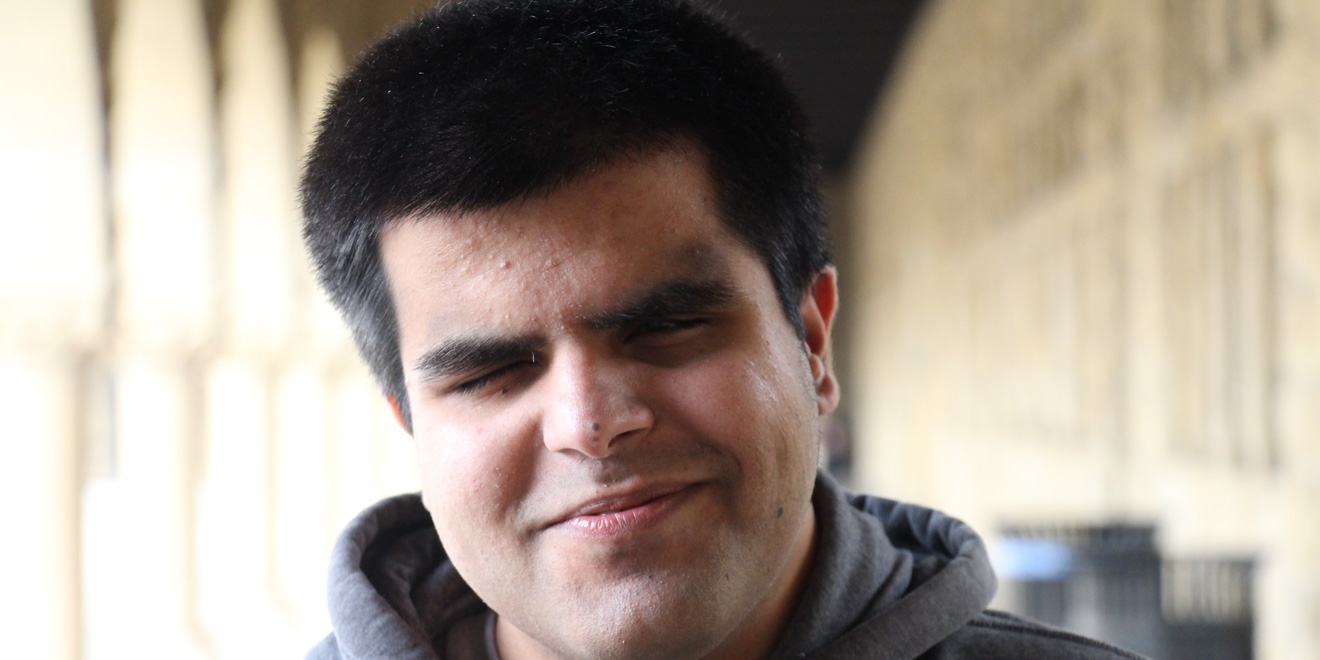This week, The Daily is partnering with Power2ACT, a disability advocacy group on campus, to spotlight members of the campus community with disabilities as part of Stanford Disabilities Week. This article is part of that “faces of ability” series.

Kartik Sawhney ’17 M.S. ’18 is a coterm candidate in the computer science department. Sawhney serves as the steward of his organization NextBillion.org, which helps students with disabilities find mentors and jobs. He is also the founder of the project STEMAccess, which seeks to convert technical information into formats accessible to blind students, and he plans to work as a software engineer.
He is also blind.
Sawhney was born blind due to retinopathy of prematurity, which causes abnormal blood vessel growth in the retina and detaches it from the back of the eye. He attended one of the few schools in India that believe seeing and vision-impaired students should be educated equally, and he developed an interest in computer science early on as his friends attended coding competitions.
“I had to do everything and basically type out 50 pages every day before I could start studying,” Sawhney said, reminiscing about having to transcribe physical textbooks his mother read to him into a digital format.
Despite his academic work, Sawhney was informed that he would not be admitted to the prestigious India Institutes of Technology (IIT) due to its lack of proper accommodations for his disability.
After filing a lawsuit against IIT on the basis of discrimination, Sawhney subsequently decided to attend Stanford, where he currently serves as president of Power2Act, a student group that he says has given him a platform for spreading awareness about disability.
“Even more important than accommodations is the attitude of the community in general,” he said. “[For example, [I’m] not a blind person — [I’m] a person who happens to be blind… There’s a whole lot of difference between that and I think it’s the latter that I’ve seen on campus.”
Currently, the Office of Accessible Education (OAE) provides Sawhney with his textbooks in digital format and ensures his equal access to University programs and services. In order to do his work on the computer, Sawhney utilizes a software that reads out everything on his screen.
Despite resources granted to him academically through OAE and socially through Power2Act, Sawhney believes that that there is more the University community can do. He emphasized the need for Stanford to continue to stay up to date on disability technology and accommodations.
“We’re never gonna be done,” he said.
Indeed, Sawhney does encounter difficulties on campus. Practically speaking, he cites constant on-campus construction as a major obstacle to his navigation by GPS. Speaking to social barriers, Sawhney said some students and staff are still hesitant to approach him out of a fear of offending him with insensitive questions or statements.
“People are more than happy to talk about their disabilities,” Sawhney said. “We’re all learning.”
Contact Sean Chen at kxsean ‘at’ stanford.edu.